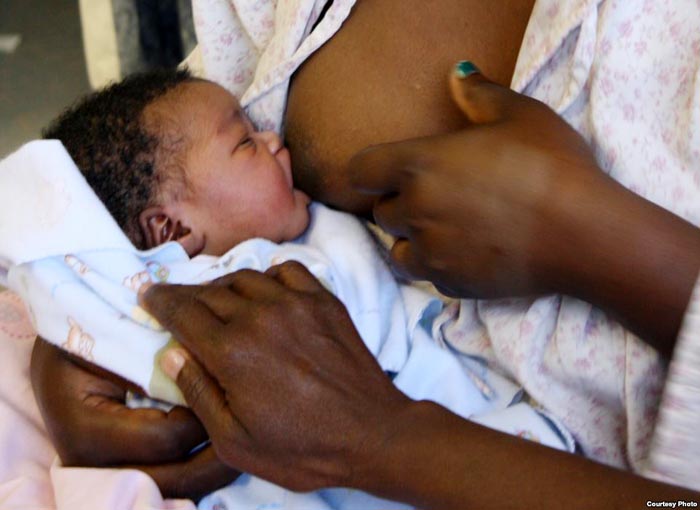By Hadiza Mohammed-Aliyu
Dr Saratu Olabode-Ojo, the Technical Director, Programmes, Nigerian Urban Reproductive Health Initiative (NURHI 2), an NGO, has boosted the myth that breastfeeding can prevent a woman from getting pregnant.
Olabode-Ojo, who said this at a training for media practitioners on Family Planning (FP) in Abuja on Friday, added that the belief in some communities that a woman cannot get pregnant soon after delivery if she is breastfeeding is not totally correct.
The NGO is working on a Bill and Melinda Gates Foundation funded five-year project to eliminate barriers to contraceptive use and make family planning a social norm in Nigeria.
FP is the practice of controlling the number of children one has and the intervals between their births, particularly by means of contraception or voluntary sterilisation.
She said that for breastfeeding to become effective form of natural FP, three conditions must be met.
”They include, the return of a woman’s monthly period, exclusive breastfeeding of the newborn baby on demand day and night with no additional food or liquid and that the baby must be less than six months old.
”If a woman is unable to meet all the criteria, she should go for another form of FP.
“There are many modern FP methods that can be used while breastfeeding,” she said.
Olabode-Ojo said the other methods were pill, intrauterine devices, implants, injectables, condoms and sterilisation.
She said that all the methods were effective if done correctly by a trained service provider.
Dr Kunle Omotoso, Programme Officer, The Challenge Initiative (TCI), speaking on ”Family Planning and Sustainable Development Goals (SDGs)” said Nigerians adopting Family Plannng would assist In achieving UN SDG 1 and SDG 2.
News Agency of Nigeria (NAN) reports that SDG 1 aimed at eliminating poverty and SDG 2, sought to achieve zero hunger, among other goals to be achieved by 2030.
Omotoso said that families would be able to provide quality education for their children, improved nutrition, good health and well being.
He said that these would translate to improved productivity and national development.
”The benefits of FP toward improving the health and economic condition of families, communities and the entire nation cannot be over emphasised. The whole essence of FP is to achieve quality life,” he said.
Mr Anselm Okolo, a Consultant, speaking on “The Role of Media in Agenda Setting”, said journalists should educate Nigerians about FP and its advantages.
Okolo said that journalists could do it as people believed what they saw, heard and read in the media.
He urged media media practitioners to explain issues thoroughly and from angles so as to allow readers and viewers can take informed decisions.
Ramatu Ochekliye, Social Media Officer, NURHI 2, speaking on “Family Planning Messaging in a Digital World”, said journalists should use digital platforms to educate Nigerians about Family Planning.
Mr Chukwuemeka Okeroafor, a Consultant and Programme Officer, Demand Generation, NURHI 2, said government needed to invest in family planning to ensure improved quality life for citizens.
He said that Family planning was for improved health, poverty elimination, quality education and good health and not for population control.
According to him, families have a healthy and productive lives when they plan the number of children to have.
Attending the two-day training were senior editors and producers from both government and private media, the print, radio, television, and social media.

